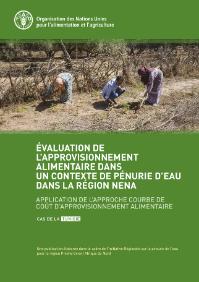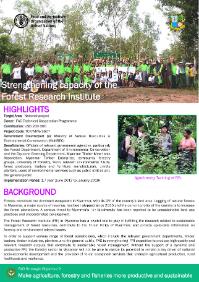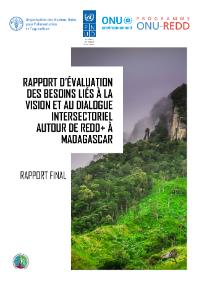Focal point
Location
The Food and Agriculture Organization of the United Nations leads international efforts to defeat hunger. Serving both developed and developing countries, FAO acts as a neutral forum where all nations meet as equals to negotiate agreements and debate policy. FAO is also a source of knowledge and information. We help developing countries and countries in transition modernize and improve agriculture, forestry and fisheries practices and ensure good nutrition for all. Since our founding in 1945, we have focused special attention on developing rural areas, home to 70 percent of the world's poor and hungry people.
Members:
Resources
Displaying 171 - 175 of 5074Voluntary Guidelines for Securing Sustainable Small-Scale Fisheries in the Context of Food Security and Poverty Eradication. At a Glance
Small-scale fisheries play a key role in ensuring food security and eradicating poverty. However, the overall development of the fisheries sector, as well as increased pressure from other sectors (e.g. tourism, aquaculture, agriculture, energy, mining, industry, infrastructure developments) with often stronger political or economic influence, has contributed to a decline in aquatic resources and threats to aquatic habitats, ecosystems and small-scale fisheries community livelihoods.
Évaluation de l’approvisionnement alimentaire dans un contexte de pénurie d’eau dans le région NENA
Ce rapport fait état du diagnostic et de l’évaluation du système d’approvisionnement et de valorisation des ressources hydrauliques en Tunisie en rapport avec la sécurité alimentaire du pays, dans le cadre de l’Initiative régionale sur la rareté de l’eau lancée par la FAO.
Strengthening capacity of the Forest Research Institute
The project brief includes information about the details of the project, the background, objective, description and key achievements of the project.
It also mentions about how the project will implement the operations to achieve Sustainable Development Goals of FAO in line with the Strategic Objectives of FAO.Through the project brief, the audience will get clear understanding on how the project operates and what advantages it will bring for the beneficiaries.Rapport d’évaluation des besoins liés à la vision et au dialogue intersectoriel autour de REDD+ à Madagascar
Madagascar est en train d’initier son processus de préparation à la REDD+, incluant le développement d’une stratégie REDD+, bien qu’une vision REDD+ pour Madagascar reste encore à établir. Pour qu’une vision et une stratégie transformationnelle et collective de REDD+ puissent voir le jour, il est nécessaire de s’assurer que:
• il existe un équilibre entre les niveaux d’importance et d’influence des différents acteurs;• les positions des différents acteurs en termes de vision REDD+ puissent converger autour d’une vision transformationnelle de REDD+;Nature-Based Solutions for Agricultural Water Management and Food Security
Accessibility to clean and sufficient water resources for agriculture is key in feeding the steadily increasing world population in a sustainable manner. Nature-Based Solutions (NBS) offer a promising contribution to enhance availability and quality of water for productive purposes and human consumption, while simultaneously striving to preserve the integrity and intrinsic value of the ecosystems. Implementing successful NBS for water management, however, is not an easy task since many ecosystems are already severely degraded, and exploited beyond their regenerative capacity.











